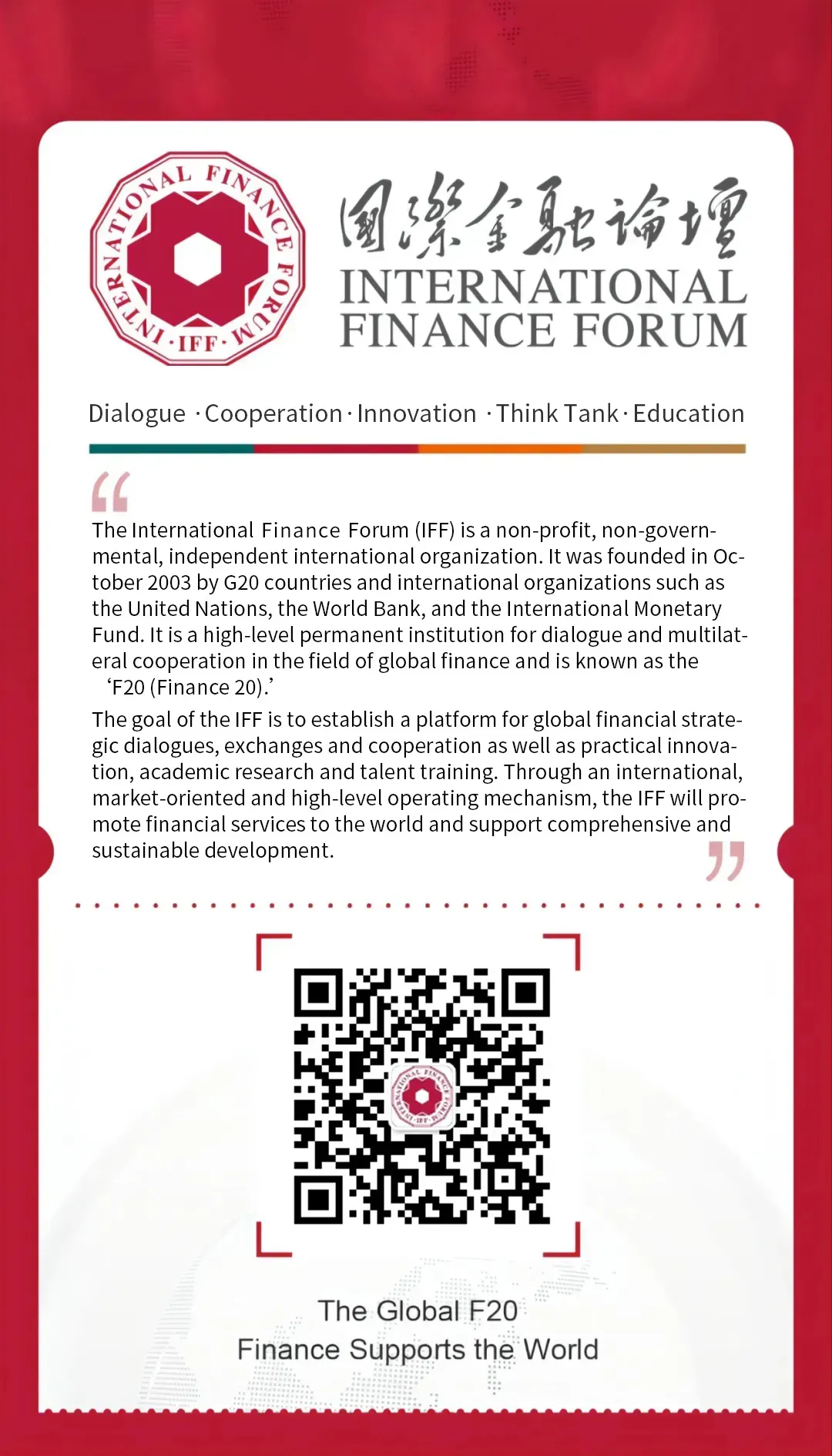HOME>NEWS CENTER>Newsletters
IFF Newsletter | UK and Australia Inflation Eases
TIME:2025-03-28
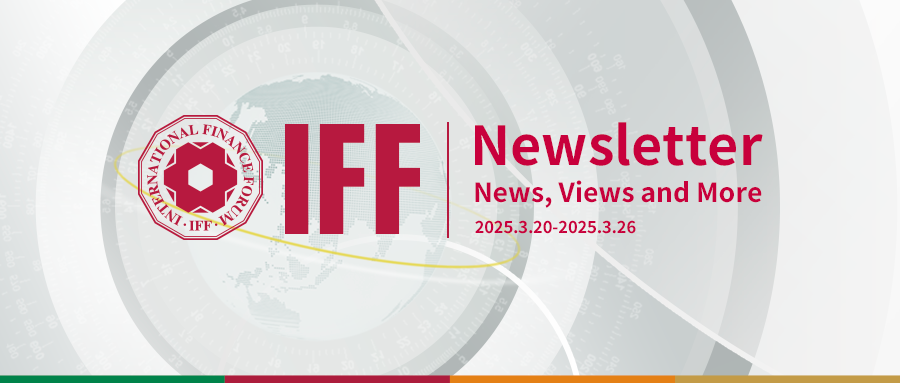
From the Editor
Around 80 multinational corporate leaders, including executives from Siemens, Apple, Samsung, and Pfizer, attended the China Development Forum 2025 held in Beijing from March 23 to 24.
These global business giants gathered in China, seeking fresh partnership opportunities with the world's second-largest economy.
Asia's gross domestic product is expected to increase by 4.5 percent this year, with the continent remaining a key growth engine for the world economy despite rising global economic uncertainties, according to an annual economic outlook from the Boao Forum for Asia released on March 25.
At purchasing power parity, the share of Asia's GDP among the global total will likely increase to 48.6 percent from 48.1 percent this year from the prior one, with the continent's overall employment and income situation continuously improving, according to the report.
Shanghai Home to 4 Industrial Clusters at The Trillion-yuan Level

China's Shanghai Municipality has nurtured four industrial clusters at the trillion-yuan level in the fields of electronics and information technology, automobiles, high-end equipment, and software and information services, according to the Shanghai Global Investment Promotion Conference, which opened on March 25.
In 2024, the scale of the city's electronics and information technology sector reached 1.2 trillion yuan (about 167 billion U.S. dollars). Shanghai's automotive cluster reported a scale of 1.1 trillion yuan last year, with nearly 280,000 local plates issued for NEVs during the period.
The city has also been engaged in the development of other key industrial chains, including integrated circuits, biopharmaceuticals, artificial intelligence, fashion consumer goods, advanced materials, and new energy and green low-carbon solutions.
The conference offered 15.42 million square meters of space, supported by 50.9 billion yuan in industrial ecosystem funding, for investment projects. Through policy incentives, resource matching and favorable services, the city is providing global innovators and enterprises with first-mover scenarios and project opportunities.
Multinational CEOs Flock to China For Business Opportunities

Heads of some 80 multinationals including Siemens, Apple, Samsung and Pfizer were present at the China Development Forum 2025 in Beijing, scheduled from March 23 to 24.
The transnational corporate chiefs flocked to China to seek new cooperation opportunities with the world's second-largest economy.
The annual event, hosted by the Development Research Center of China's State Council, has become an important platform of dialogue for the Chinese government, global businesses, academia, and international organizations.
China will continue to welcome enterprises from around the world with open arms, further expand market access, actively address the concerns of businesses, and facilitate the deeper integration of foreign-funded enterprises into the Chinese market, Chinese Premier Li Qiang said in a keynote speech at the opening ceremony of the forum.
China to Improve Quality, Expand Capacity of "Silver Economy" For Elderly

China will redouble its efforts to improve the quality and expand the capacity of its "silver economy," namely economic activities related to the country's large elderly population, Vice Minister of Civil Affairs Tang Chengpei said on March 24.
These efforts aim to create a positive cycle combining economic development and the improvement of people's livelihoods, Tang said in his remarks at the China Development Forum 2025, which was held from March 23 to March 24.
The 10-year period from 2025 to 2035 is an important time window for China to respond proactively to the challenge of population aging, Tang said.
He outlined efforts to promote the integrated development of the elderly care industry and industries such as culture, tourism, health, sports and domestic services, to expand the scope and scenarios of elderly care services, and to advance home renovation projects offering more elderly-friendly facilities, among other efforts.
China's Fiscal Revenue Down 1.6 Pct in First Two Months
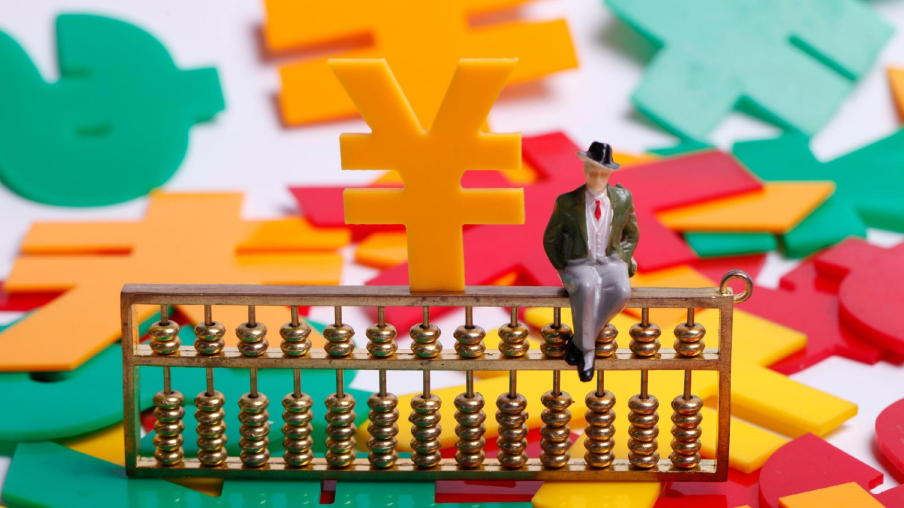
China's fiscal revenue dipped 1.6 percent year on year to nearly 4.39 trillion yuan (about 611.59 billion U.S. dollars) in the first two months of the year, according to data from the Ministry of Finance released on March 23.
The central government collected nearly 1.95 trillion yuan in fiscal revenue, down 5.8 percent year on year, while local governments collected nearly 2.44 trillion yuan, up 2 percent year on year.
China's fiscal expenditure expanded by 3.4 percent year on year to nearly 4.51 trillion yuan in the first two months. The central government's fiscal expenditure rose by 8.6 percent year on year, while there was a 2.7 percent increase in expenditure by local governments during the same period.
China's E-commerce Sector Posts Robust Growth in First Two Months

China's e-commerce sector demonstrated sound growth momentum in the first two months of 2025, the Ministry of Commerce said on March 21.
Artificial intelligence and the country's consumer goods trade-in program have contributed to steady growth of the sales of online goods, with humanoid robots and other embodied intelligent products emerging as new highlights in digital consumption, according to the ministry.
Official data showed that China's online retail sales of physical goods rose 5 percent year on year during the Jan.-Feb. period, outpacing the 4 percent growth of retail sales of consumer goods.
Shanghai, Shenzhen, Hong Kong Are Among World's Top 10 Global Financial Centers

Three Chinese cities, namely Shanghai, Shenzhen, and Hong Kong, have been listed among the world's 10 largest financial centers, according to the 37th edition of the Global Financial Centers Index released on March 20.
The top 10 for this year consists of New York, London, Hong Kong, Singapore, San Francisco, Chicago, Los Angeles, Shanghai, Shenzhen, and Seoul in order from one to 10, the report by UK think tank Z/Yen Group and the China Development Institute showed.
Hong Kong bagged 760 points this year, up from 749 points last year, moving just two points behind London at 762 and distancing itself from Singapore at 770. Shanghai and Shenzhen scored 744 points and 743 points, up by six and 11 points, respectively. New York had 769 points.
Except for Seoul, which made the top 10 for the first time this year, the remaining nine cities were there also last year. Forty-nine cities climbed the ranking, 18 remained in the same position, and 52 moved down the ranking.
Newsletter
International News
UK, Australia See Further Easing in Inflation Rates

Britain and Australia both reported lower inflation figures for February, according to official data released on March 26.
The UK's Consumer Prices Index (CPI) rose 2.8 percent year on year in February, down from 3 percent in January and slightly below market expectations of 2.9 percent, the Office for National Statistics reported. While the figure marks continued progress in curbing price pressures, it remains above the Bank of England's 2 percent target.
Britain's core inflation, which excludes volatile items like energy, food, alcohol and tobacco, also moderated to 3.5 percent from 3.7 percent in January. The CPI goods annual rate eased to 0.8 percent from 1.0 percent, while services inflation held steady at 5.0 percent.
In Australia, the annual consumer price index rose 2.4 percent in the year to February 2025, down from 2.5 percent in the previous two months, according to the Australian Bureau of Statistics (ABS). Food and non-alcoholic beverages, alcohol and tobacco, and housing were the main drivers of inflation.
The country's underlying inflation measures also showed improvement. The trimmed mean inflation rate declined to 2.7 percent from 2.8 percent in January, while inflation excluding volatile items and holiday travel slowed to 2.7 percent from 2.9 percent, ABS head of prices statistics Michelle Marquardt said.
US Consumer Confidence Falls For 4th Consecutive Month

US consumer confidence dropped for a fourth consecutive month in March, showed a survey released by business research group the Conference Board on March 25.
The group said its consumer confidence index further sank to 92.9 in March, lower than the forecast consensus of 94.2.
The Expectations Index, which is based on consumers' short-term outlook for income, business and labor market conditions, dropped 9.6 points to 65.2, the lowest level in 12 years and well below the threshold of 80 that usually signals a recession ahead, said the release.
In March, only 37.4 percent of consumers expected stock prices to rise over the year ahead, down nearly 10 percentage points from February and 20 percentage points from the high reached in November 2024, the release said.
Asia's GDP Expected to Grow 4.5 Pct in 2025 - Report
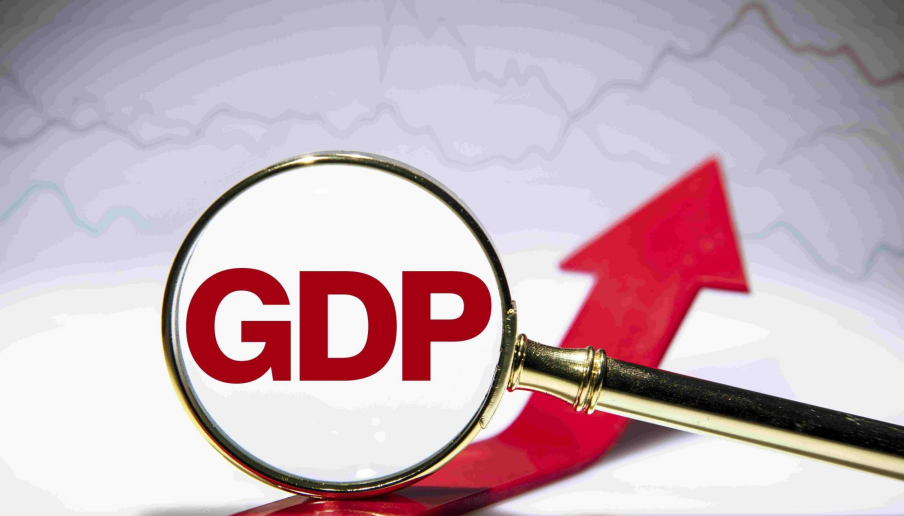
The weighted real GDP growth rate of Asia is projected to reach 4.5 percent in 2025, an increase from 4.4 percent in 2024, according to a report released by the Boao Forum for Asia on March 25.
"Despite increasing global economic uncertainty, Asia has remained as a key growth engine for the world economy," said the report titled Asian Economic Outlook and Integration Progress.
At purchasing power parity, the ratio of Asia's GDP among the global total is expected to rise from 48.1 percent in 2024 to 48.6 percent in 2025, the report said.
The overall situation of employment and income is turning upwards in Asia, with its unemployment rate projected at 4.39 percent in 2025, lower than the global rate of 4.96 percent, according to the report.
Japan Household Financial Assets Hit Record High

Financial assets held by households in Japan totaled 2,230 trillion yen (about 15 trillion U.S. dollars) as of the end of 2024, up 4.0 percent from a year earlier to a new record, Bank of Japan data showed on March 21.
Supported by rising stock prices following a tumble in August last year, stockholdings went up 9.5 percent to 298 trillion yen, while investment trusts soared 27.4 percent to 136 trillion yen, the data showed.
The balance of cash and deposits, which accounted for half of the total, gained 0.6 percent to 1,134 trillion yen. Of them, cash shrank 3.4 percent to 105 trillion yen due to higher prices and an increase in cashless payment services.
Insurance products edged up 0.5 percent to 383 trillion yen on the back of a weakening yen, which pushed up the balance of foreign currency-denominated assets.
ECB Chief Calls For Greater Trade Integration Amid US-EU Trade Tensions
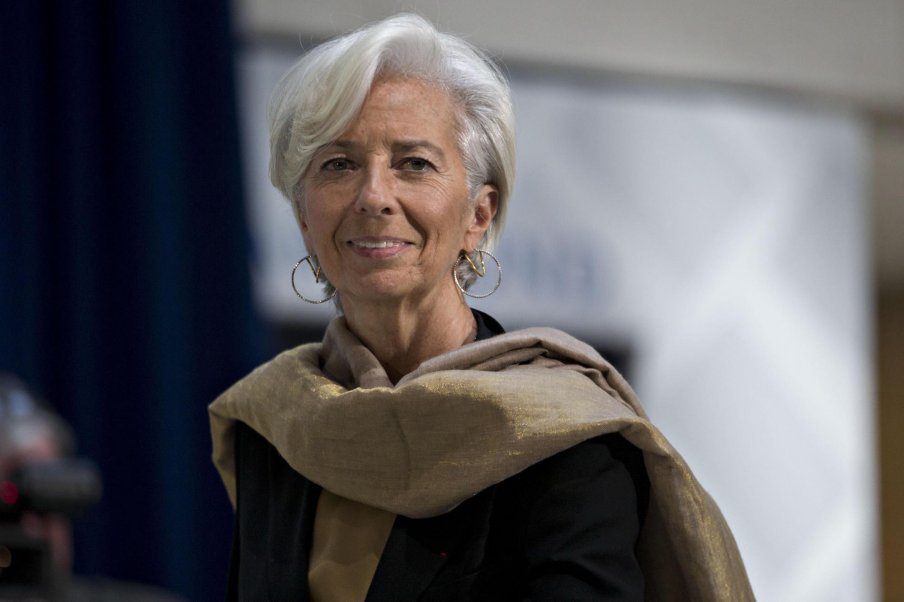
European Central Bank (ECB) President Christine Lagarde on March 20 urged greater trade integration with the rest of the world to counter the economic fallout from escalating trade tensions between the U.S. and the European Union (EU).
During a hearing at the Committee on Economic and Monetary Affairs of the European Parliament in Brussels, Lagarde said that heightened trade frictions could slow eurozone growth by up to half a percentage point and drive up inflation.
The eurozone, which is highly open to trade and deeply integrated into global supply chains, particularly with the U.S., is "particularly exposed to shifts in trade policies," she noted.
According to ECB analysis, a 25-percent U.S. tariff on imports from Europe would reduce eurozone growth by approximately 0.3 percentage point in the first year, and if Europe retaliated, the decline could deepen to half a percentage point, Lagarde said.
While the most significant impact would be felt in the first year after the tariffs take effect, Lagarde cautioned that the negative effects on economic output could linger.
U.S. Fed Keeps Interest Rates Unchanged at 4.25-4.5 Pct Amid Inflation Concerns
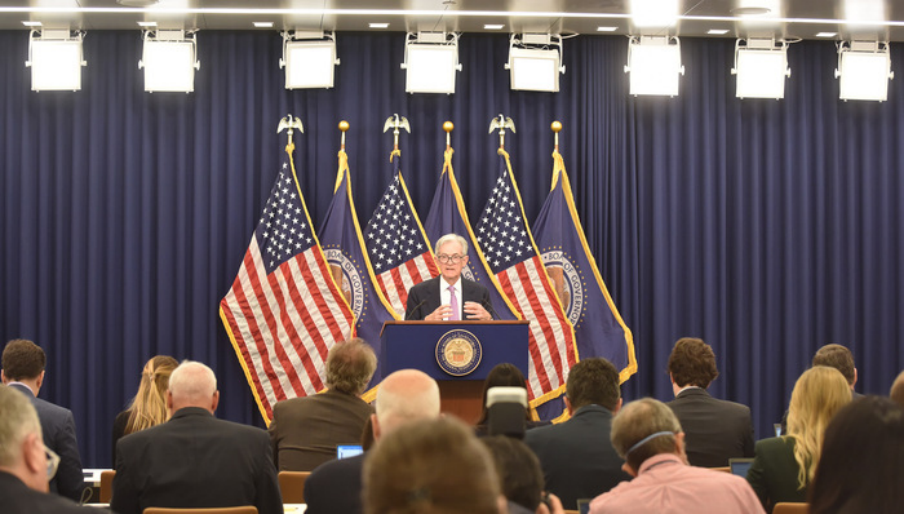
The U.S. Federal Reserve on March 20 left target range for the federal funds rate unchanged at 4.25 percent to 4.5 percent, amid rising inflation concerns due to the Trump administration's tariff policies.
"Uncertainty around the economic outlook has increased. The Committee is attentive to the risks to both sides of its dual mandate," the Federal Open Market Committee (FOMC), the central bank's policy-setting body, said in a statement after a two-day meeting.
"In support of its goals, the Committee decided to maintain the target range for the federal funds rate at 4-1/4 to 4-1/2 percent," the statement said.
